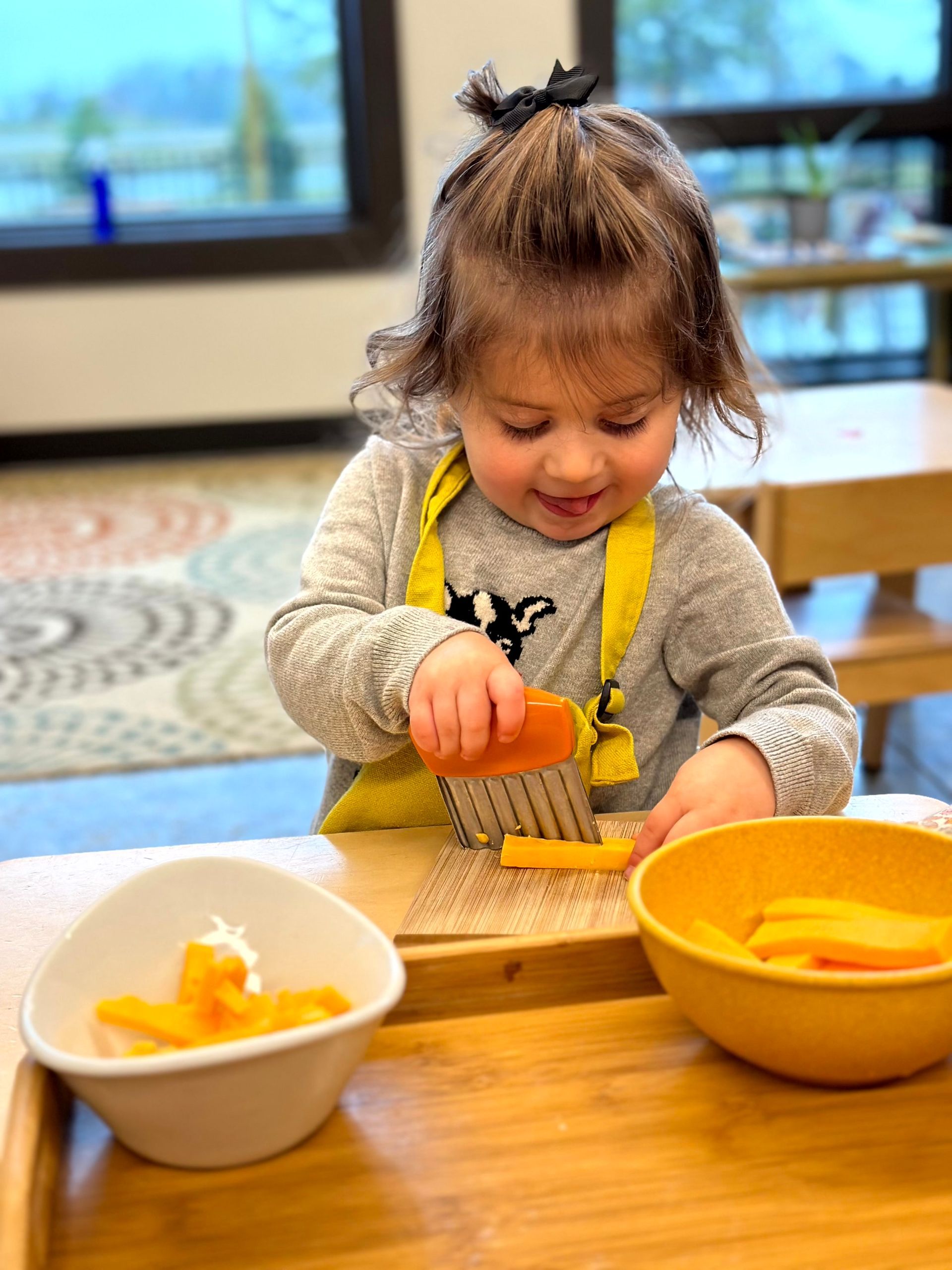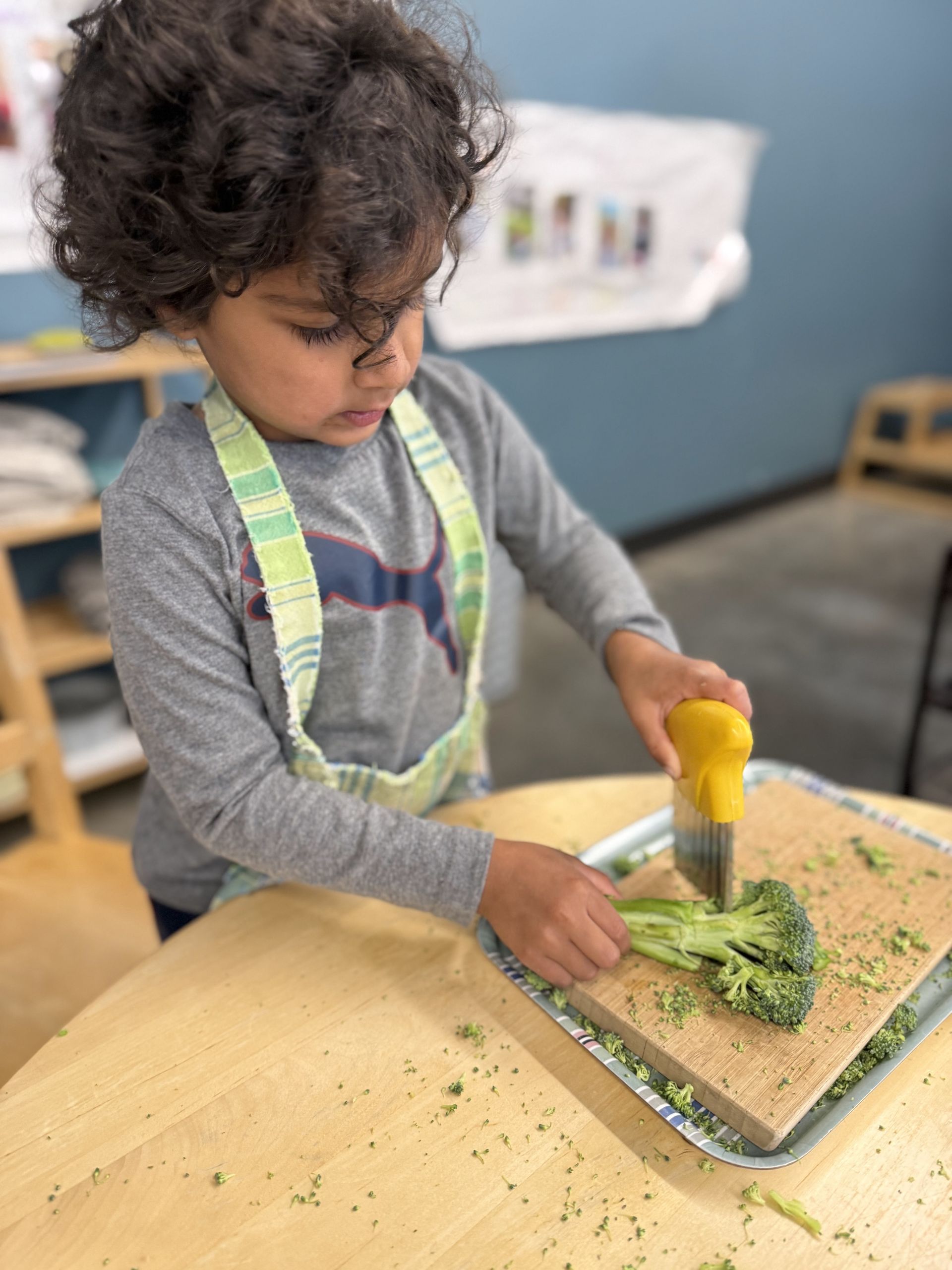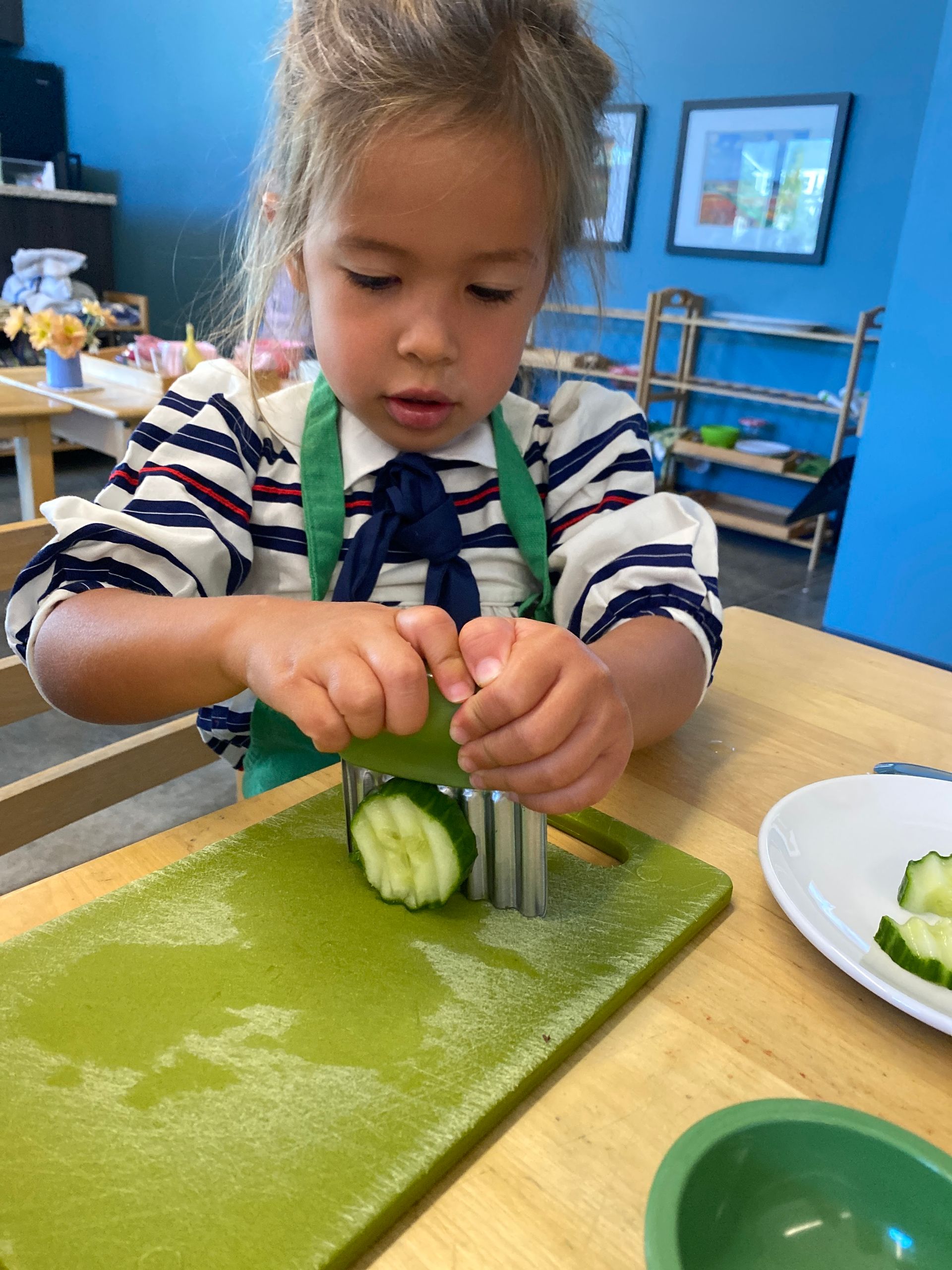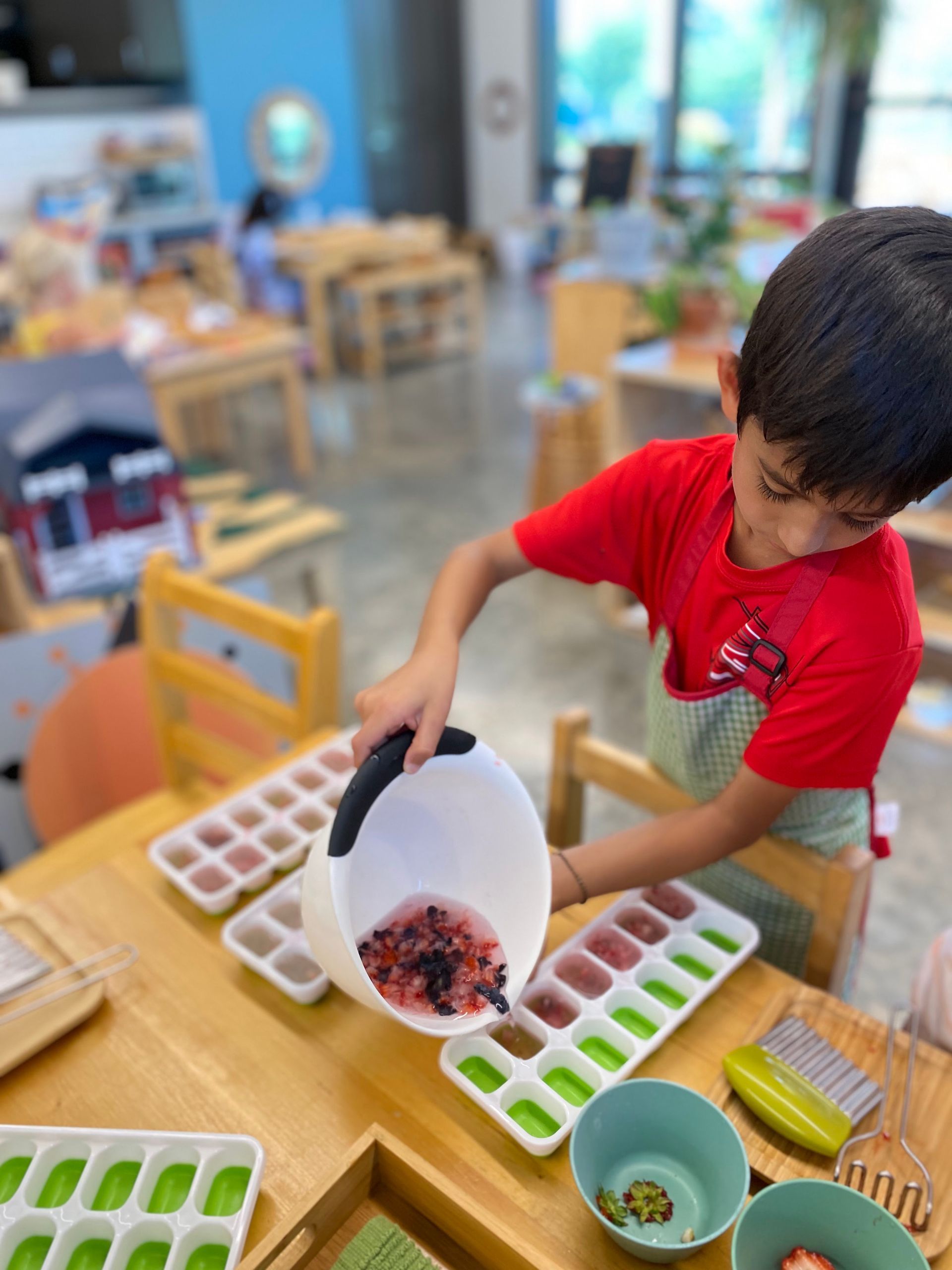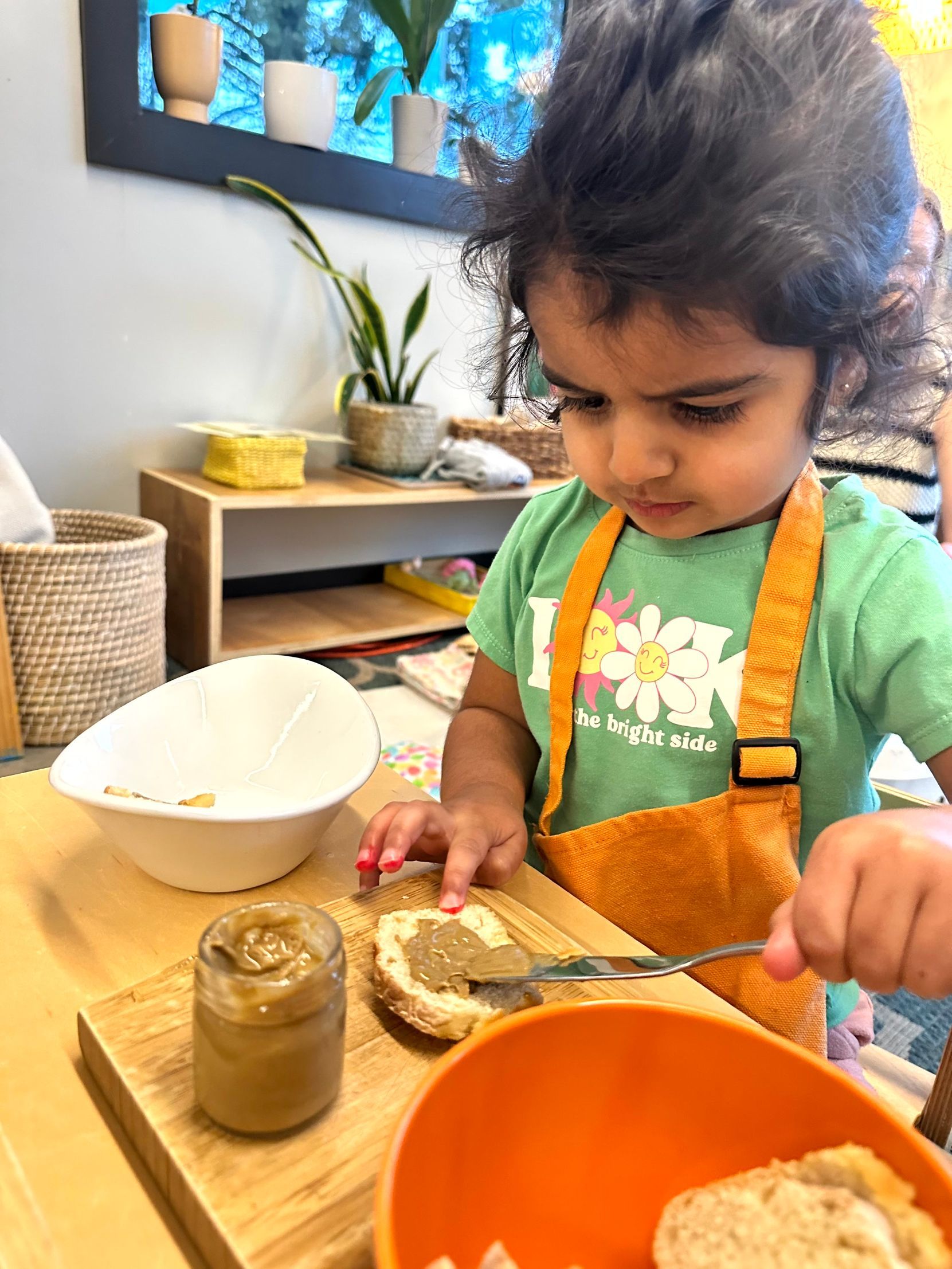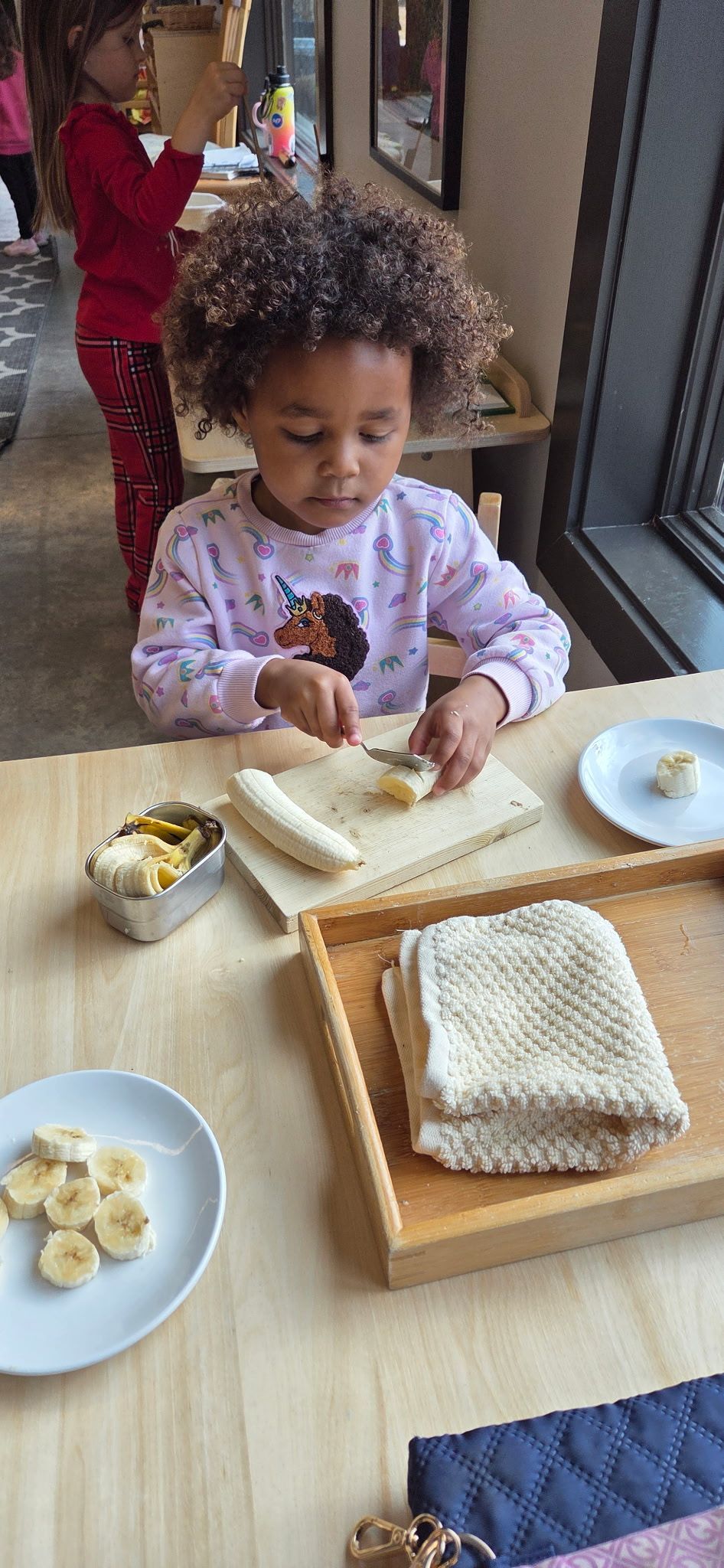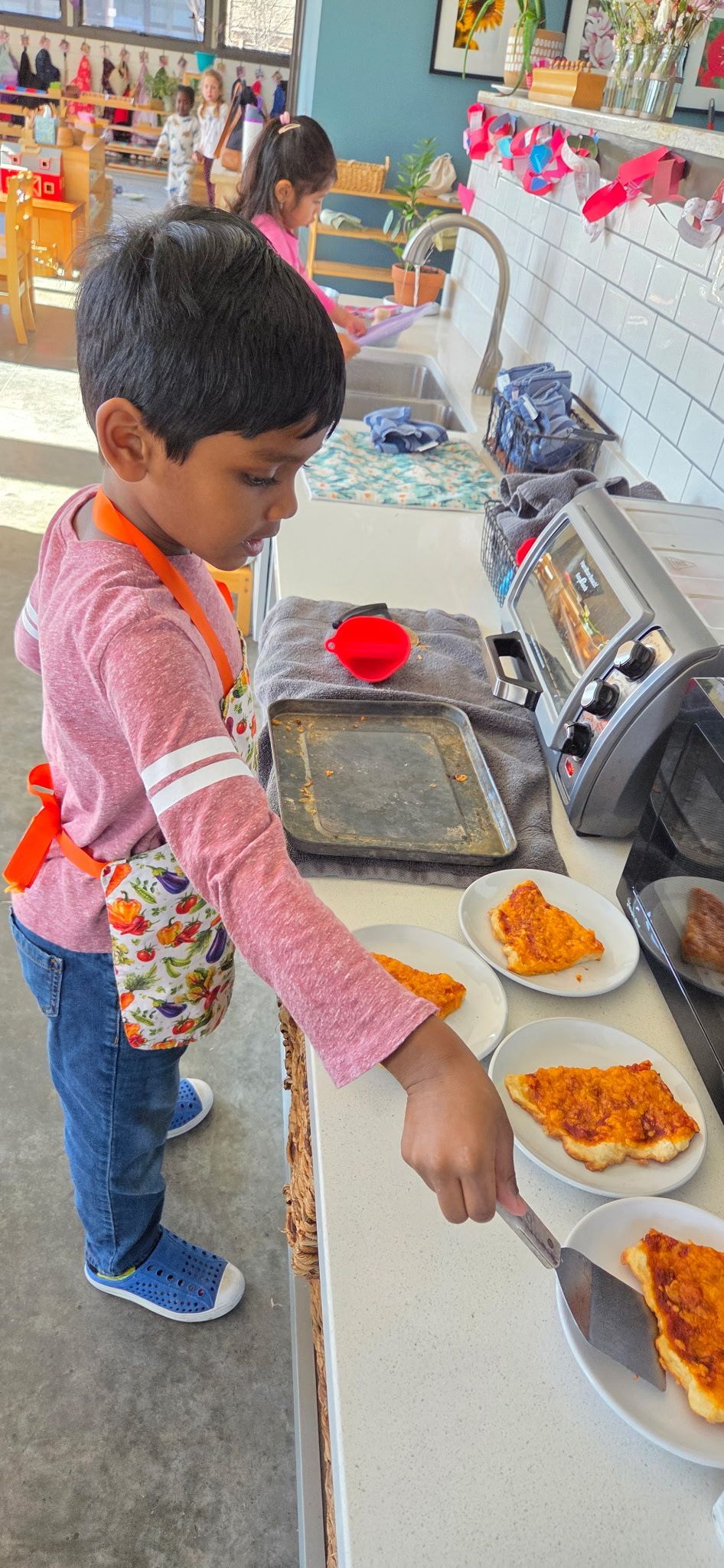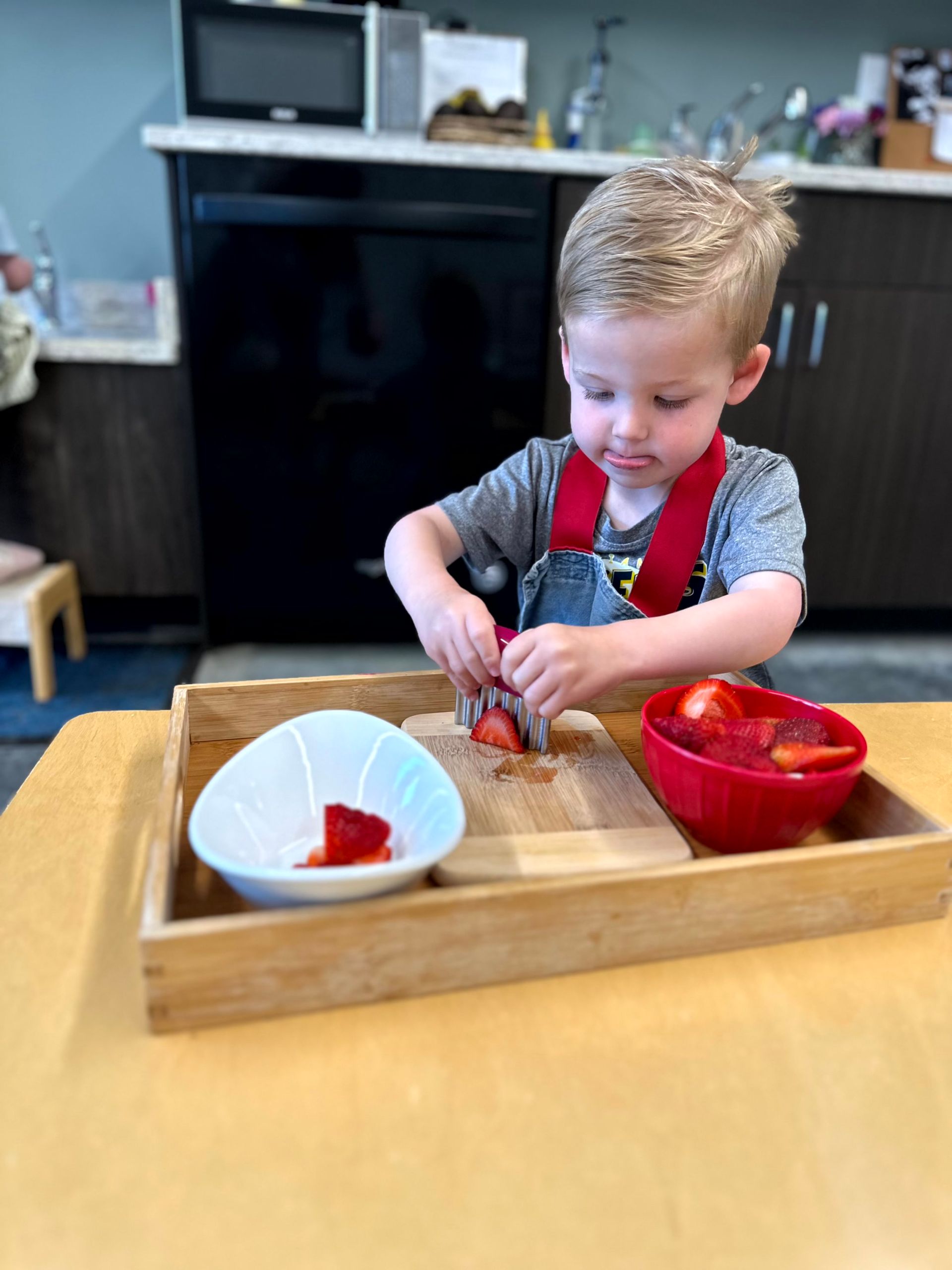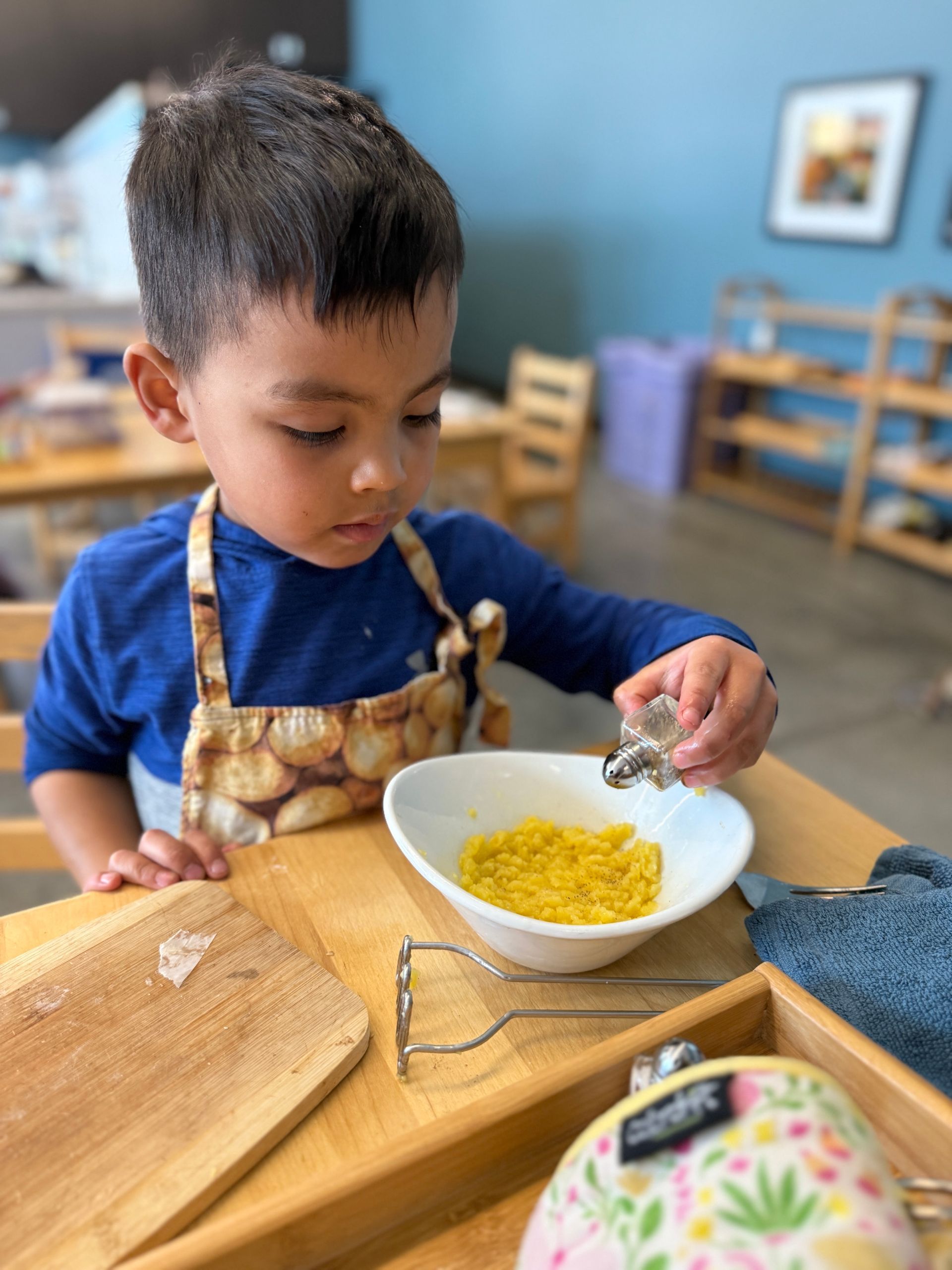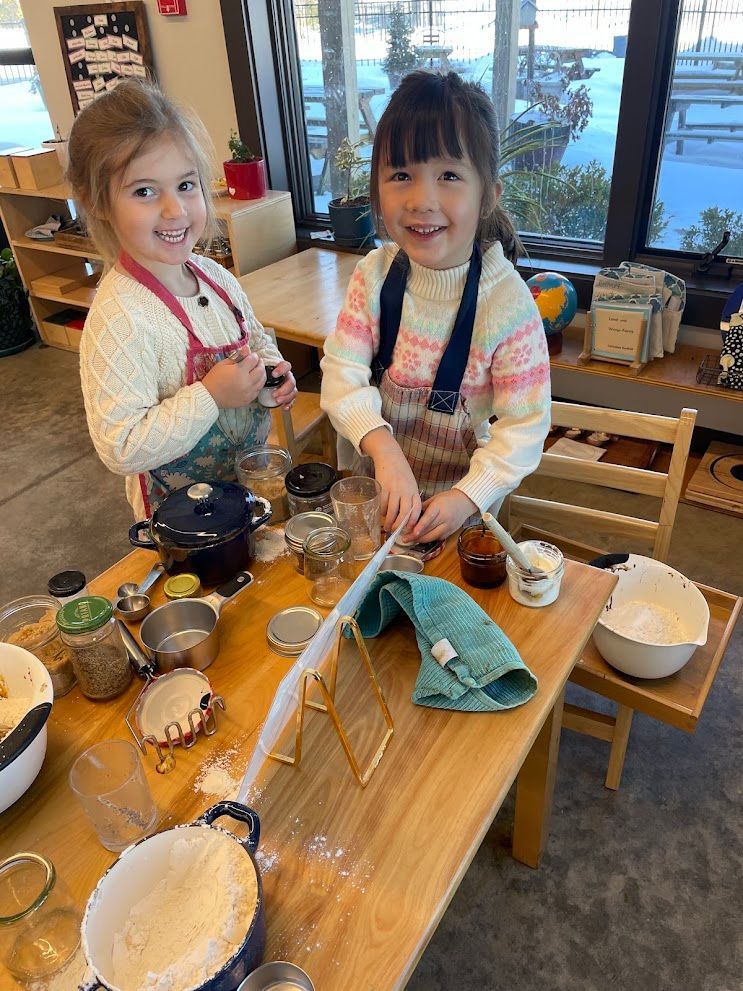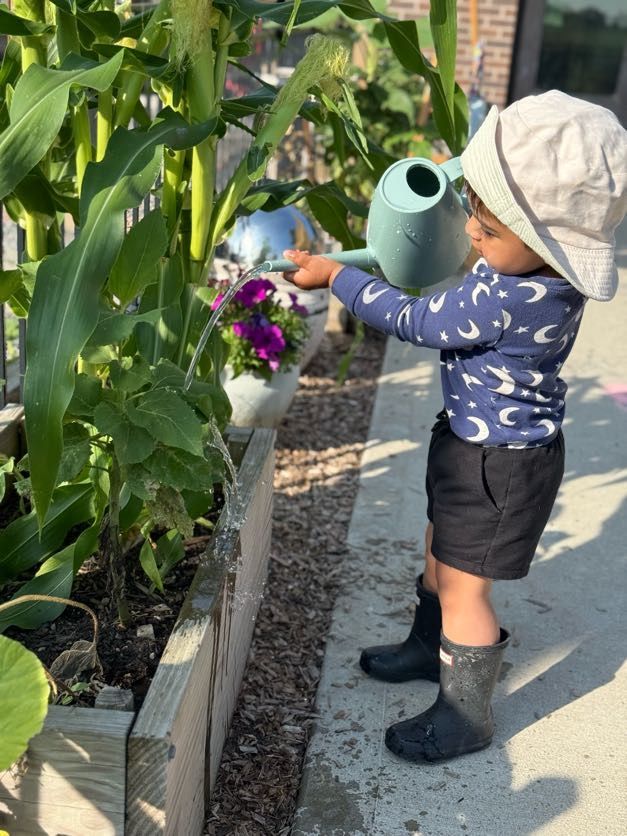"The child is capable of much more than we think."
MARIA MONTESSORI
Food preparation is a fundamental part of the Montessori curriculum, helping young children develop independence, coordination, and a deeper connection with their environment. In a Montessori classroom, food preparation activities provide rich sensory experiences and practical life skills that build confidence and responsibility.
The Importance of Food Preparation in Montessori
In our Montessori classrooms, children engage in real, purposeful work. Food preparation is more than just making a snack—it provides opportunities to develop fine motor skills through slicing, peeling, pouring, and spreading. Following step-by-step tasks enhances concentration and focus, while the ability to prepare their own snacks and meals fosters independence. Exposure to a variety of fresh foods encourages healthy eating habits, and working together to prepare and serve food helps build social skills. Additionally, cleaning up after themselves instills a sense of responsibility and care for their environment.
Food Preparation Materials in the Montessori Classroom
Food preparation works are designed to match the child’s developing coordination, attention span, and level of independence. Common works in the toddler and primary environments include:
1. Washing and Peeling
- Washing fruits and vegetables in a small basin of water.
- Peeling a banana and slicing it with a safe, child-friendly knife.
2. Scooping, Spreading, and Mixing
- Scooping yogurt into a bowl.
- Spreading butter, jam, or cream cheese onto crackers or bread using a dull spreader.
- Mixing ingredients for simple recipes like fruit salad or yogurt parfaits.
3. Pouring and Transferring
- Pouring water or juice from a small pitcher into a cup.
- Using tongs to transfer fruit pieces from a bowl to a plate.
4. Slicing and Chopping
- Slicing soft foods like bananas, strawberries, or cucumbers with a wavy chopper.
- Using a child-safe knife to cut apples, cucumbers, or cheese.
- Chopping herbs with scissors to add to simple dishes.
5. Juicing and Measuring
- Juicing oranges or lemons with a hand juicer.
- Measuring flour, sugar, or grains using small measuring cups.
- Stirring ingredients together for a batter or dough.
6. Baking and Cooking
- Preparing simple, no-bake recipes like granola or energy balls.
- Baking muffins, desserts or bread.
7. Setting the Table, Serving, and Cleaning Up
- Placing plates, cups, and napkins on the table.
- Setting up snack trays and offering food to classmates.
- Serving water or tea to guests in a prepared, graceful manner.
- Wiping the table and sweeping small spills.
Creating a Prepared Environment for Food Preparation
Montessori food preparation activities require a well-organized and child-friendly setup. Providing accessible tools, such as child-sized kitchen utensils like knives, peelers, pitchers, and bowls, allows children to work independently. Prepared work areas with all necessary materials ensure that children can choose and complete an activity with ease. Safety considerations, including demonstrating proper handling and offering supervision when needed, help maintain a secure environment. Encouraging clean-up is also essential, as having small cleaning tools available allows children to take responsibility for wiping spills and washing dishes after preparing food.
Benefits of Children Engaged in Food Preparation Work
Food preparation in a Montessori classroom offers a rich array of developmental benefits that go far beyond fostering independence and coordination.
- As children engage in tasks like peeling, slicing, and plating, they naturally practice logical sequencing by following steps in a meaningful order. These activities strengthen executive functioning skills such as planning ahead, remembering procedures, and maintaining attention to detail.
- Fine motor development is supported through precise hand movements required for pouring, slicing, and peeling, while math readiness emerges through counting, measuring, and portioning.
- Language flourishes as children name foods, utensils, and actions, expanding vocabulary through real-world context.
- Social-emotional skills are nurtured through opportunities for turn-taking, offering food, and serving others, cultivating grace, courtesy, and empathy.
- Central to all of this is the link Montessori observed between purposeful, hands-on work and the development of concentration and normalization—children who prepare food often reach a calm, focused state and experience a sense of order. This work is made accessible through carefully prepared environments with low shelves, child-sized trays, and tools designed for small hands, empowering children to work independently and with control.
Food preparation is not just about nourishment; it is a meaningful connection to culture, family, and community. It builds lasting confidence as children see themselves as capable contributors to daily life.

